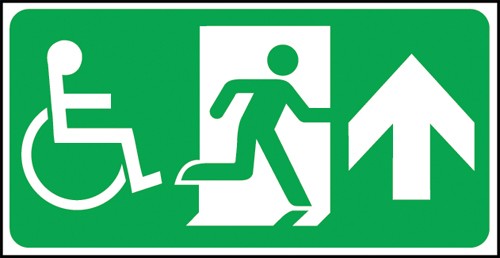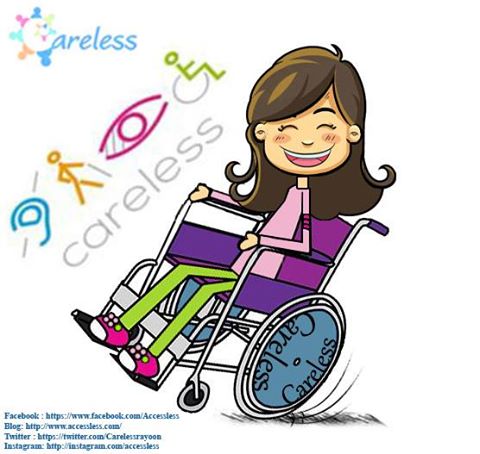The ‘Brexit’ handicap
Leaving the EU could be catastrophic for disabled Britons, yet little attention has been given to their needs or their voices.

Wednesday 23 March 2016
Britain leaving the European Union would have “harmful” and “dire” consequences for disabled people, according to two of the first leading disabled figures to speak out on June's referendum.
The UK will decide whether to leave the EU in a referendum on 23 June, but very little has been said publicly, especially by the government, about the potential impact of this vote on disabled people.
Deborah King, co-founder of Disability Politics UK, criticised the campaigns both for and against Brexit for failing to spell out “what the impact of Brexit would be on disabled people”.
She said: “We need to know the effects on our income – for example, if the economy took a nosedive, would we be facing yet more cuts?”
“Would there be a rush to also withdraw from the European Convention [on Human Rights] as well?” she added. “There are many unanswered questions.”
Another disabled campaigner who has spoken out is Miro Griffiths, a former government advisor and project officer for the European Network on Independent Living, and now a lecturer, researcher and teacher.
He said he believed that Britain's exit from the EU “would have dire consequences for disabled people”.
Griffiths said the EU could be criticised on many issues, such as its failure to implement strategies to protect refugees who enter Europe, but “disabled people's life chances would certainly not improve if we were to leave”.
By remaining, he said, disabled people can continue to use existing EU frameworks and directives to “continually challenge our state and the power it exerts”.
He suggested that “sustained grassroots pressure” and “diplomatic dialogue” could lead to the EU challenging the damage caused by the UK government's cuts to disabled people's support.
Griffiths also said he feared that the “fetishism” of some Brexit supporters on the issue of UK “sovereignty” would lead to a post-Brexit UK government “imposing a concept of justice that reinforces and validates their actions, which will continue to oppress many groups”.
This could lead, he said, to disabled people becoming “voiceless – with reduced support from our European neighbours”.
Griffiths, a member of the British Council's advisory panel on disability issues, said: “Many will argue that the EU is complacent in tackling the social injustice within many member states and I would agree with their analysis.”
But he added: “If we are isolated from our supporters in Europe, then our resistance towards the state is merely interpreted as disobedience.”
Another prominent disabled figure who has spoken out in favour of staying in the EU is the crossbench peer Lord Colin Low, who said: “I have no doubt that leaving the EU would be harmful to disabled people's interests.”
“There have been many occasions when European legislation has been ahead of the UK's or what the UK was prepared to deliver,” he noted.
Many disabled people's organisations have not had the time or resources to prepare a position on Brexit, although Disability Rights UK has promised to release a statement before June's referendum.
There has not been a disabled campaigner or user-led organisation in favour of Brexit, but two of the mainstream organisations campaigning to leave the EU commented briefly this week, although neither argued that there were benefits of Brexit that would solely apply to disabled people.
Jack Montgomery, a spokesman for Leave.EU, said: “We think that Brexit will be good for everyone in the UK.”
Edward Spalton, president of the Campaign for an Independent Britain, said: “Our view is that the UK's own position on disability rights and practical support for disabled people is ahead of many EU countries. Of course, more can and will be done.”
“The EU has a policy with similar aims to that of the UK legislation but in many countries its implementation [is] less advanced in practice than in the UK,” he elaborated. “So the position for people with disabilities with regard to EU membership is broadly the same as for the whole population.”
But this is actually inaccurate. Due to our greater vulnerability than the general population, the consequences of a Brexit would be more serious. What would the impact be on assistants and carers recruited from other EU countries? How easy would be to travel abroad for health-related appointments? And many other unresolved question hang in the air.
The recent years of austerity have undermined the rights of people with disabilities. With the current government regarded by many disabled people as one that punishes the poor and vulnerable while helping the rich get richer, it is clear that whatever happens on 23 June, Britain's disabled population's battle with the Tories is set to escalate, and without the backing of the EU, we will be left alone to fight our corner.


